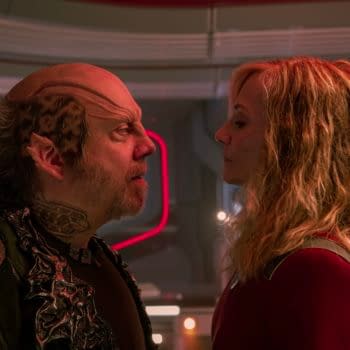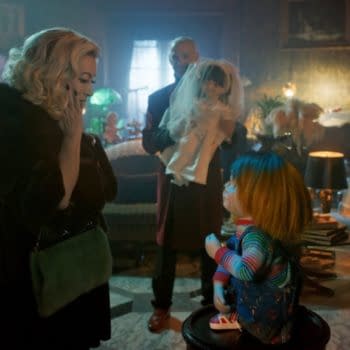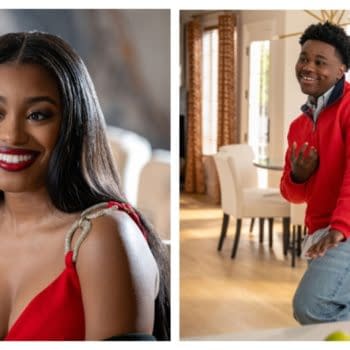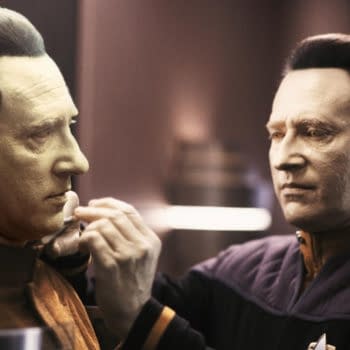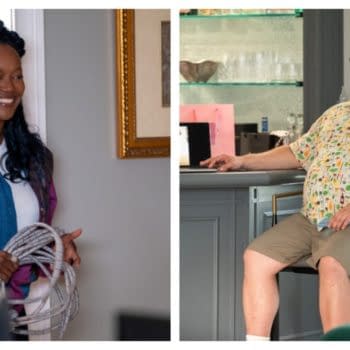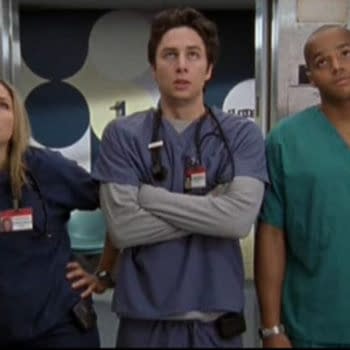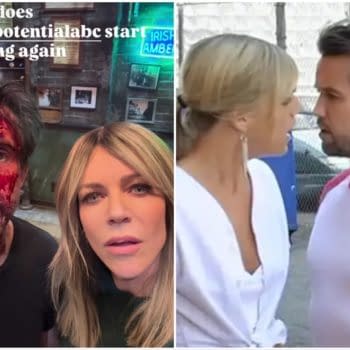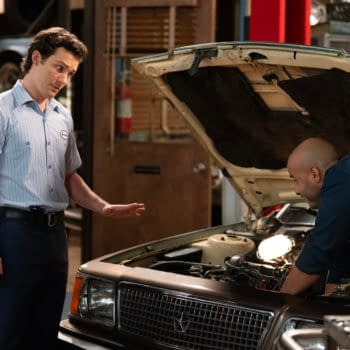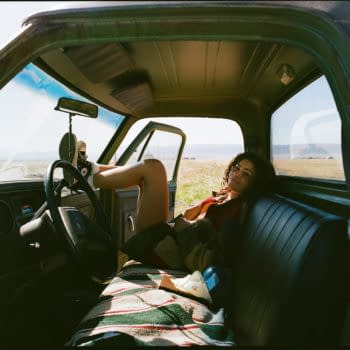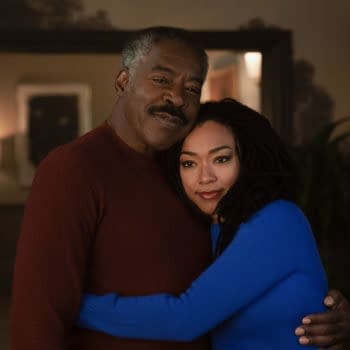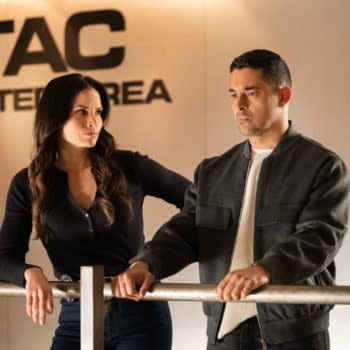Posted in: FX, TV | Tagged: fx, interview, rob mcelhenney, ryan reynolds, welcome to wrexham
Welcome to Wrexham Editor on Series Sophistication & Storytelling
Editor Charles Little II discussed what he learned during FX's Welcome to Wrexham, working with Ryan Reynolds & Rob McElhenney, and more.
Editor Charles Little II is always looking for that next challenge tackling various subjects and, on occasion, even going into the director's chair for a few projects. While the bulk of his career on reality television, he's helped tell some compelling stories, including MTV's RuPaul's Drag Race, NatGeo's Alaska's Grizzly Gauntlet, and TLC's Dr. Pimple Popper. Little has even transitioned to procedural drama in 20th Century Studios Television, and the Ryan Murphy franchise 9-1-1 prepares for its seventh season on its new home on ABC, and its spinoff 9-1-1: Lone Star gearing for its fifth on Fox. He spoke with Bleeding Cool on his foray into the FX sports docuseries Welcome to Wrexham as he served as editor for two season-one episodes, "Daggers" and "Do or Die." The series developed by Ryan Reynolds and Rob McElhenney tells the story of the duo taking ownership of the UK's soccer club Wrexham A.F.C. and the lives of the coaches, players, their families, and fans. Among the subjects discussed included how Little was recruited into the series, what surprised him about Reynolds & McElhenney, and how his time on the series helped him professionally.
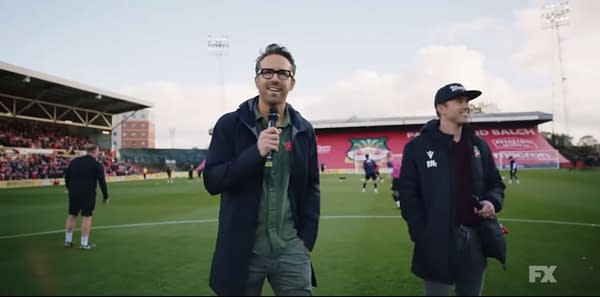
How 'Welcome to Wrexham' Became a Golden Opportunity for Charles Little
How did you get involved with 'Welcome to Wrexham?'
Little: Showrunner John Henion works with Boardwalk Pictures and other companies like Film 45. I had been courting him for several years because I like a lot of the projects that he has helmed, and I wanted to work on documentary series and films that had a level of sophistication and storytelling. I got lucky when he finally gave me a shout and said, "I got some space on this new program called 'Welcome to Wrexham.' Would you come on board?" I said "Yes" right away.
How does a project like 'Wrexham' differ from the projects you normally do that are not in your typical wheelhouse? Does it present its own set of challenges?
Yes, sports documentary to answer the first part of your question. You're correct. I both intentionally and luckily like to diversify my work. I don't try to go too all over the place, but I like to move around and work different creative muscles. 'Welcome to Wrexham' was one of my first sports documentaries. It is a special piece of material because it is a documentary series around a sport and its lifestyle, but it was also like a single-camera comedy as well, especially with the presence of Ryan Reynolds and Rob McElhenney. It was a unique hybrid and a great opportunity to edit.
What were your first impressions of Rob and Ryan going in? Did that change once after meeting them?
I was completely blown away. It's dangerous sometimes to meet your idols or meet famous people, but those guys are every bit of what you think they are. I never met Ryan Reynolds in person, but having access to the breadth of material that we've worked with on this project allowed me a window to see a lot of Ryan in scenarios that I would have otherwise never been able to witness. His humanness and his candor, wittiness, and sharp spontaneous presence that you see on screen. That's how he is all the time. He doesn't take himself too seriously, which is great. You can also watch him flip a switch when he goes into the full creative process, and he is trying to communicate something or he's in search of that spot and magical piece trying to get something over the edge from good to great. To see all those different sides of him was quite a privilege, and it was quite inspiring.
As an editor, I and the rest of the team, fed from that a lot. Rob McElhenney, on the other hand, is a creative monster, constantly thinking and moving chess pieces around the board. He's a strategist, and then out of nowhere…the funny! He's always looking at everything not too seriously. He's trying to find the fun and shock value in it all. Rob's always putting his story first, letting his own experiences lead the way. One of the things he shared along the way was the connection between the town of Wrexham and his youth growing up in Philadelphia, and his love of the Eagles. It paralleled the passion that he saw in the Wrexham fans for their football [soccer] club. As editors, the team and I, again, fed from both Rob and Ryan throughout the process.
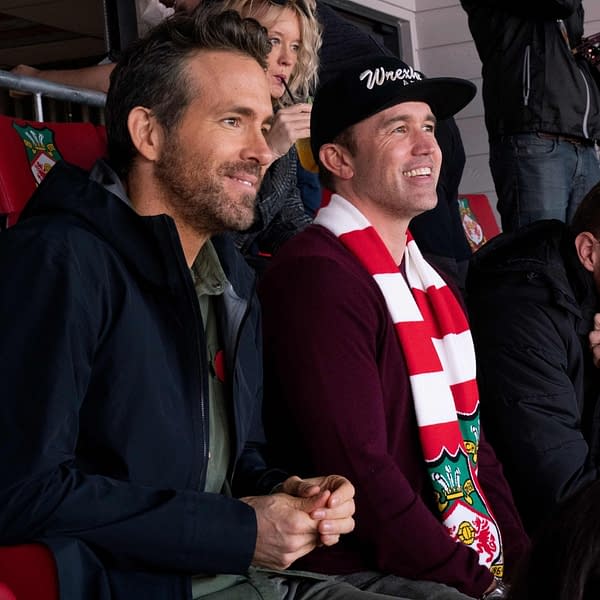
Was there a particular sequence that was more difficult than others?
The match sequences were always tough because it wasn't just the match, but there was a lot of cross-cutting between the match and personal player stories. Cross-cutting between the match and the personal stories of the fans in the stands. A lot of tonal shifts, sometimes on a dime, and then sometimes trying to make that shift seem a bit more gradual, timing and toning all of that was always a challenge. We would then retool, return, reexamine, shorten, lengthen, and then shorten it again before distilling it down to its most poignant elements. It was always a challenge but rewarding.
You're able to wear multiple hats in various projects, and I was wondering how your editing has helped you in directing…
When I first shifted my focus toward filmmaking, I fancied myself a director because I had been a promoter in the past, and I had also run my graphic design studio, so I was generally accustomed to having my vision lead my way and then I try to manifest said vision. That led me toward directing, but it was in the editorial process that I found the product was made there, and it infected me. It took me over that entire process as an editor, constantly searching through performances from actors, imagining, and re-imagining material when I'm working with unscripted or nonfiction material has informed me when I'm in the director's chair. It taught me to get out of the way to allow what is happening in front of the camera to unfold and let the camera capture it. It's also helped me to think bigger and more strategically. You don't shoot everything.
I don't just shoot for coverage but have intention with what you capture. I do a bit of editing in my head when I'm in the director's chair, but the biggest lesson that editing has taught me when I'm not editing is how to create a situation that will capture. What is going to happen so that we can get out of the way and allow as much of that authentic thing to take place? Let the camera capture it, and then that gives us who's ever in the editor's chair in my experience, the best raw material to work with.
Welcome to Wrexham is available to stream on Hulu and will return for its third season in 2024.






